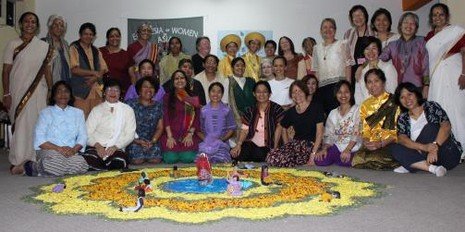An Asian Woman’s Theology

An Asian Woman’s Theology
Chung Hyun Kyung
Out of many contradictory teaching in the Bible, Asian women use most frequently the teaching from Genesis which contains the message that men and women are created equally in God’s image (Genesis 1:27, 28). “In God’s Image” is an important biblical phrase Asian women have adopted to define their perspectives on humanity.
From Struggle to Be the Sun Again: Introducing Asian Women’s Theology (1990)
Kwok Pui-lan
When Asian feminists talk about God … they focus on God as the source of life and the creative, sustaining power of the universe.
From Introducing Asian Feminist Theology (2000)
Kwok Pui-lan
Feminists in the Third World do not have the luxury of attending to gender oppression alone, without simultaneously taking into consideration class, racial, colonial, and religious oppression. Their political theology takes many forms, including the option for solidarity with the poor, the critique of cultural alienation and racial repression, the challenge of globalized economy, and activism for ecojustice and protection of nature.
From Postcolonial Imagination and Feminist Theology (2005)
Marianne Katoppo
Most people in Asia are exploited, have been exploited, and perhaps cannot conceive of a future in which they will not be exploited. They have to fight for their very existence—to say nothing of social justice and human dignity.
From Compassionate and Free: An Asian Woman’s Theology (1980)
Hak Joon Lee
In and through community, a person becomes a person in the truest sense, acquiring skills and the virtues that define a human … the self is the self only in relation to others: without others, the self is incomplete … the wellbeing of self and the well-being of others are inextricably connected in a community.
From We Will Get to the Promised Land (2006)
Leslie Veen
It is important to hear and to incorporate the voices from cultures and peoples long silenced so that all will truly know the life-giving love of the Triune God. We need to once again start from lived experience and only then move to finding theological words to express those experiences. When all voices are heard and all experiences are seen as valid starting points, then our theological language will more closely resemble the loving, perichoretic union that is the triune God whom we worship and adore. Then will we be more fully living into the image of God in which we were created. Then will we be honoring the God the Creator, Redeemer, and Sustainer of all that is.
From “Listening to Voices Long Silenced” (2013


 Votes : 0
Votes : 0









